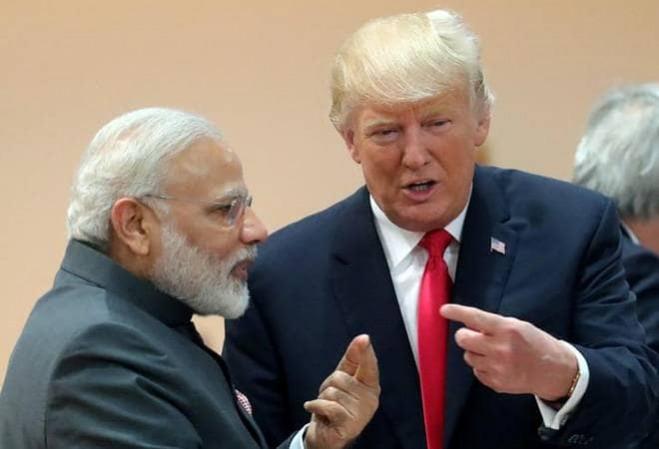
Days after America imposed 25 percent tariff on steel and a 10 percent import duty on aluminium products, under its Generalised System of Preference, India has imposed retaliatory tariffs on 29 products imported from the United States, effective June 16.
Though the tariffs will place a burden of $220-290 million on the United States, America's imposition of tariff on Indian products will have a revenue implication of about $240 million on our steel and aluminium products.
The Modi-led BJP government had initially decided to impose these duties on June 28 last year but the deadline was extended multiple times in the hopes of a solution emerging through negotiations on a proposed trade package.
The US announced that it would be reviewing India's eligibility for the GSP last year, but decided that it would withdraw the benefits in June 2019.
In retaliation to the move, India has notified higher tariffs on several goods, including a hike of import duty from 30 percent to 120 percent on walnut, and 70 percent on masur dal. The duty on lentils will be increased to 40 percent, and on boric acid and binders for foundry moulds to 7.5 percent.
The other products on which duties will be hiked include certain kind of nuts, iron and steel products, apples, pears, flat-rolled products of stainless steel, other alloy steel, tube and pipe fittings, and screws, bolts and rivets.
The Commerce and Industry Minister Piyush Goyal said last week that India accepts the decision of the US to withdraw GSP benefits to its exporters "gracefully", and will continue to work towards making the exports competitive.
India's move comes in the light of a meeting between US President Donald Trump and Prime Minister Narendra Modi, on the sidelines of the G20 summit in Japan, on June 28-29.
Meanwhile, US secretary of state Mike Pompeo is also scheduled to visit New Delhi on June 25-26, on his way to the G20 Summit, to hold bilateral discussions with his Indian counterpart and External Affairs Minister S Jaishankar.









!['Had denied Housefull franchise as they wanted me to wear a bikini': Tia Bajpai on turning down bold scripts [Exclusive]](https://data1.ibtimes.co.in/en/full/806605/had-denied-housefull-franchise-they-wanted-me-wear-bikini-tia-bajpai-turning-down-bold.png?w=220&h=138)



